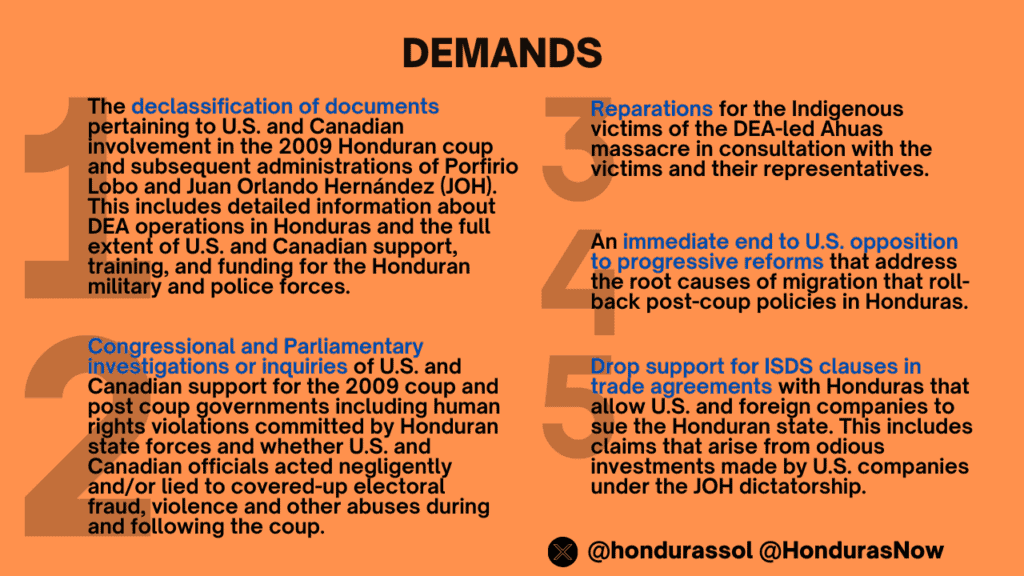Since 2009, the U.S. and Canadian governments recognized and legitimized three contested elections in Honduras, calling them “peaceful”, “transparent”, and “fair.” As President Juan Orlando Hernández (JOH) goes to trial in New York, U.S. prosecutors highlight how each election further entrenched the narco-state, were funded by drug money, giving JOH and his cartel more power. Despite clear evidence over 12 years of a human rights crises, corruption scandals, and fraudulent elections, the U.S. and Canadian governments maintained their support for Honduras’ ‘democratic’ institutions, further empowering JOH and his drug trafficking allies.
“You see, in 2005 the defendant’s National Party lost the presidential election and they vowed to never let that happen again. To increase his own power and the power of his family, the defendant [Tony Hernández, JOH’s brother] helped funnel millions of dollars in drug money into the National Party campaigns. They did that for the elections in 2009, 2013, and 2017” – Emil J. Bove, U.S. Attorney for the Southern District of NY (Doc. 113, p. 6).
Below: A summary of each election; the warning signs; words from U.S. prosecutors about the significance of each election in entrenching the narco-state; and the post-electoral responses from the U.S. and Canadian governments in 2009, 2013 and 2017.
The 2009 elections
- Were held five months after the U.S.-trained military overthrew President Manuel Zelaya.
- Juan Orlando Hernández (JOH) became President of Congress and Porfirio Lobo Sosa, President of Honduras.
The U.S. and Canada ignored the human rights situation and warnings from the OAS & U.S. Congress.
- All candidates that opposed the 2009 coup d’état withdrew their participation in the elections.
- Up until a month before the elections, constitutional rights in Honduras were suspended. In the coup’s aftermath, state repression caused 21 political assassinations, and over 3,000 people were illegally detained by state security forces.
- Honduras remained suspended from the Organization of American States (OAS) which “strongly condemning the coup d’état in Honduras and demanded the immediate and unconditional return of President José Manuel Zelaya Rosales to his constitutional duties” describing a “break-down of constitutional order” and that “no government arising from this unconstitutional interruption will be recognized.”
- U.S. Congress woman Jan Schakowsky described to the Honduran press: “a serious deterioration of human rights in Honduras since the coup” including the “complete violation of the fundamental, democratic principle of freedom of the press” on November 12, 2009.
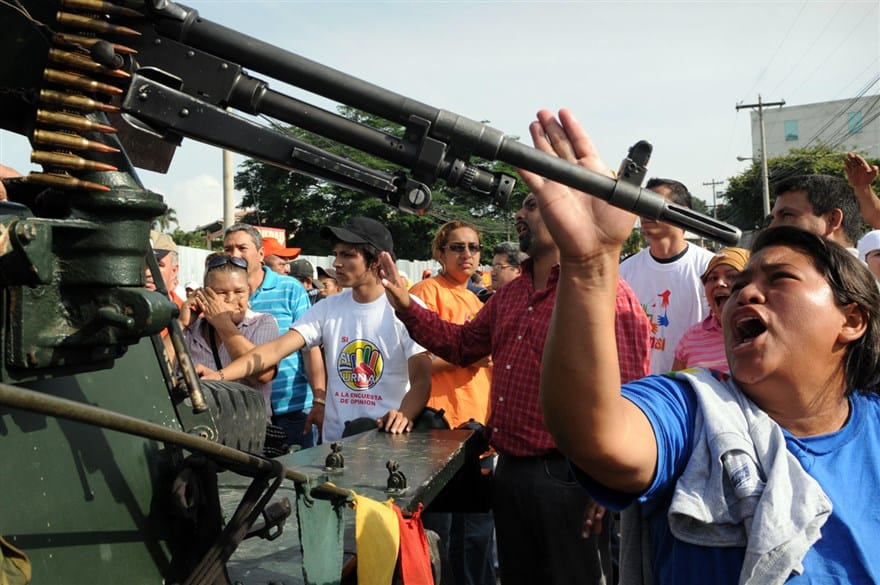
U.S. prosecutor’s write about the 2009 electoral campaign:
“Juan Orlando and Pepe Lobo worked together to obtain $2 million in drug trafficking proceeds for their respective campaigns” (Doc 554, p. 13).
“But around 2009 is when things changed, is when this conduct [drug trafficking] got even more serious, it’s when the defendant [Tony Hernández] and his co-conspirators took steps to take over the Honduran government to use it for drug trafficking.” (Doc. 113, p. 39).
These are the results of the elections in 2009. Pepe Lobo becomes president as of 2010, and Juan Orlando Hernandez, the defendant’s brother, becomes president of the congress. And at this point, ladies and gentlement [of the jury], the National party and these drug traffickers control the presidency, they control of the president of congress, which is like controlling the vice president here. And this is when the state-sponsored drug trafficking truly started, and the things that I described as astonishing began to take place” (Doc. 113, p. 41).
After the elections, the U.S. government said:
Arturo Valenzuela, Assistant Secretary of State, Bureau of Western Hemisphere Affairs, November 30, 2009:
“I would like to commend the Honduran people for an election that met international standards of fairness and transparency despite some incidents that were reported here and there.”
Thomas Shannon, senior U.S. envoy to Latin America, U.S. Assistant Secretary of State:
“the US will recognise the November 29 elections even if the Honduran congress votes against Zelaya’s return to power before the vote” as reported by Al Jazeera on November 4, 2009.
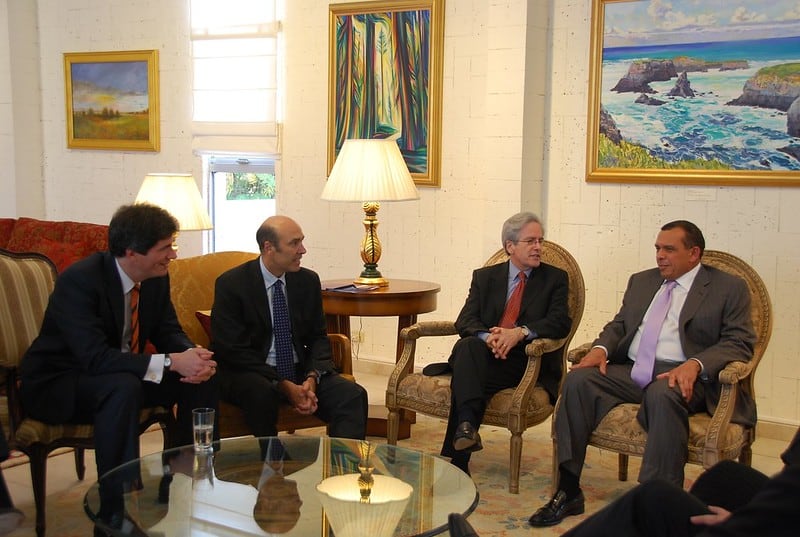
Credit: US Embassy Tegucigalpa
The Canadian government said:
Peter Kent, Canada’s Minister of State of Foreign Affairs (Americas) said in a public statement on December 1, 2009.
“Canada congratulates the Honduran people for the relatively peaceful and orderly manner in which the country’s elections were conducted … we are encouraged by reports from civil society organizations that there was a strong turnout for the elections, that they appear to have been run freely and fairly, and that there was no major violence.”
The 2013 Elections
Summary: The widely anticipated 2013 elections in Honduras was an exciting moment for the country. It was the first time that the Liberty and Refoundation Party (LIBRE) would participate in an electoral process after forming years prior. The party was supported by the people that formed and participated in the the resistance movement against the 2009 coup. It was also the first time that Juan Orlando Hernández ran for President, leading his election campaign as the President of the National Congress. The elections were fraught with fraud, local election observers were threatened and locked in a hotel by armed men in the (narco-)municipality of El Paraíso, Copan. 36 candidates and their family members were murdered and 24 attacked in the six months leading up to the elections.
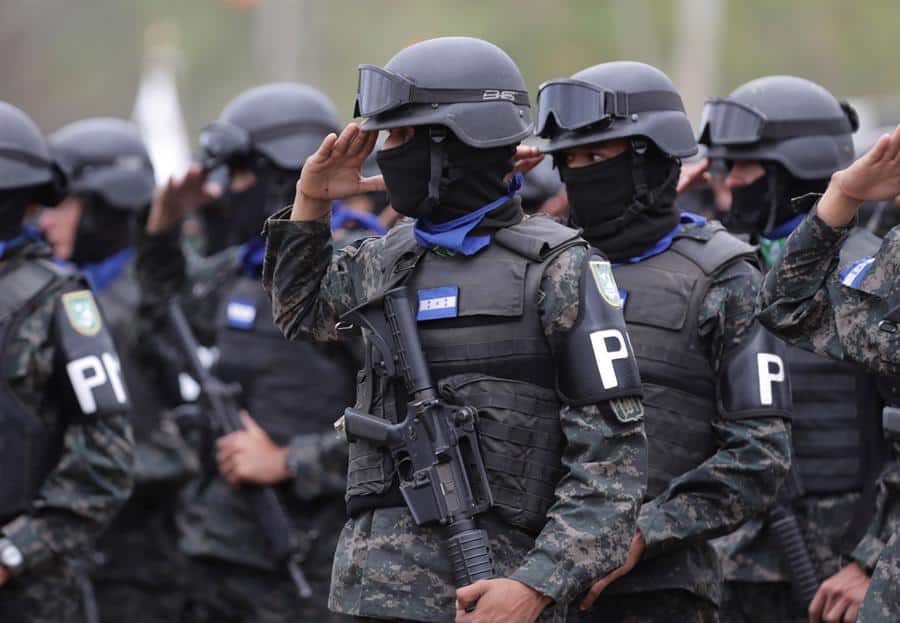
U.S. prosecutors write about the 2013 election process:
“Prior to the 2013 presidential election, Juan Orlando privately solicited and accepted millions of dollars from drug traffickers and misappropriated Honduran government funds for his campaigns. Leading up to the 2013 elections, Alex Ardon [former mayor of El Paríso, Copan and confessed drug trafficker, now cooperating witness for the government] spent approximately $1.5 million in drug trafficking proceeds to bribe politicians in Copan to support Juan Orlando. Alex Ardon paid nearly every mayor in Copan in some form, and was explicit during each interaction that he was paying the mayors in exchange for their support for Juan Orlando ahead of the upcoming elections” (Doc. 554, p. 15).
The warning bells ignored by the U.S. and Canada
- 13 U.S. Senators led by Senator Kaine wrote in a letter to Secretary of State, John Kerry on November 13, 2013: “Hondurans prepare to go to the polls in a difficult and dangerous climate. The country suffers from elevated levels of crime and the highest per capita murder rate in the world. Fragile institutions and a besieged judiciary have done little to punish the perpetrators of the violence, encouraging a climate of impunity and undermining citizens’ confidence that their political, civil and human rights will be protected. Moreover, Honduran journalists are regularly the targets of violence and threats, and political candidates have been killed as a result of running for office. These challenges raise serious concerns over the Honduran government’s ability to conduct free and fair elections.” (For more letters from Congressional representatives about the 2013 elections, go here.)
- In a Rights Action report, Karen Spring wrote November 21, 2013: “Almost a month remains until Hondurans will cast their votes in the 2013 general elections. To date and since the May 2012 Primary Elections, there have been a disproportionate number of killings and attempted killings targeting LIBRE candidates.” The report outlines that 36 election candidates or their family members were killed and 24 suffered armed attacks.
After the elections, the U.S. government said:
U.S. Ambassador Lisa Kubiske said to the Honduran press on November 25, 2013:
“The United States had 110 observers in almost all departments and what we saw was a transparent process “… the vote scrutiny is being conducted “with normality and there were few incidents of violence.”
U.S. Secretary of State, John Kerry said in a public statement on December 12, 2013:
“we commend the Honduran Government for ensuring that the election process was generally transparent, peaceful, and reflected the will of the Honduran people.”
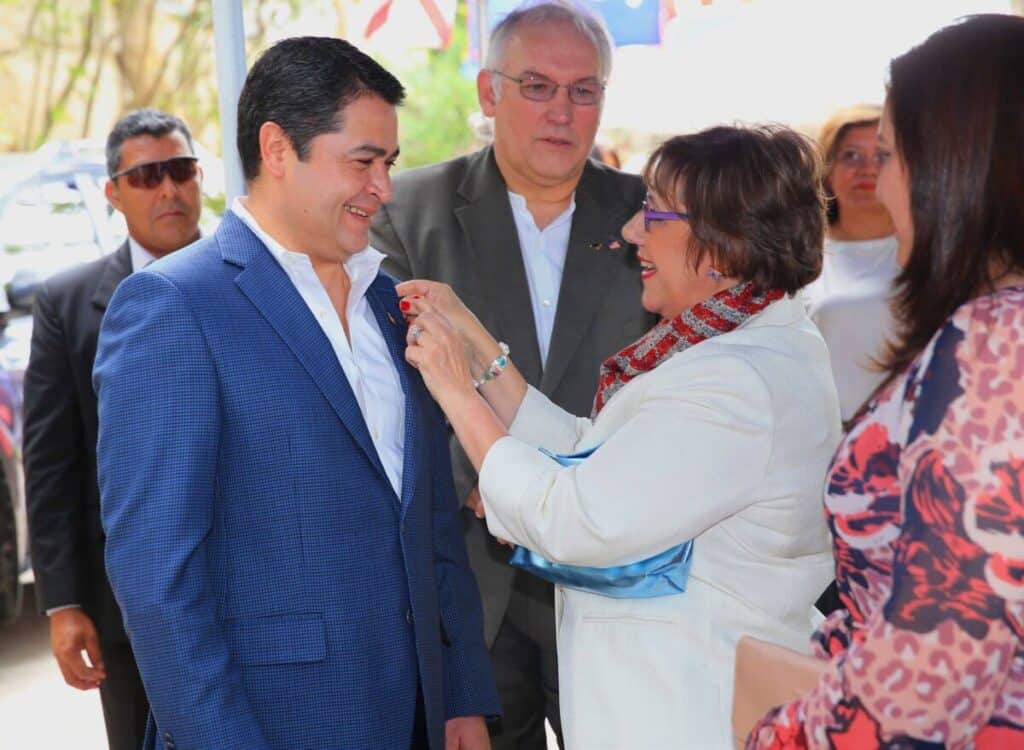
The 2017 Elections
Summary: The most contested and fraudulent elections in Honduras since the coup. Juan Orlando Hernández sought re-election despite the its prohibition in the Honduran Constitution. On the evening of the electoral count, Hernández’s opposition candidate, Salvador Nasralla was leading by 5% in the polls. Then the vote tally computer systems crashed and did not come back on until days later. Meanwhile, widespread protests broke out around the country denouncing the vote manipulation and an electoral fraud. State security forces began open-firing on protesters killing over 30 people. Hundreds were illegally detained. When the electoral systems came back online, Hernández was leading by a small margin. The head of the Organization of American States (OAS), Luis Almagro stated: “Facing the impossibility of determining a winner, the only way possible so that the people of Honduras are the victors is a new call for general elections.” Then the OAS electoral observation mission released a report concluding that there could be no certainty that the official results were accurate. Hernández ignored these calls and declared himself the winner.
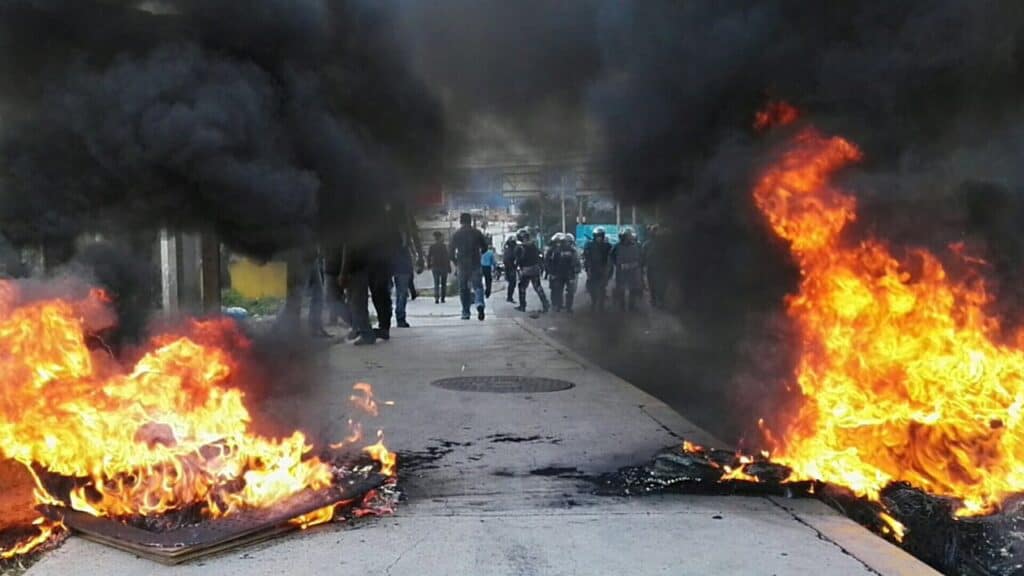
U.S. Prosecutors write about the 2017 election process:
“By the time of the November 2017 elections, Juan Orlando and the National Party controlled all aspects of the Honduran government, including the HNC [Honduran National Congress], the CSJ [the Supreme Court of Justice], law enforcement, the military, the TSE [Supreme Electoral Tribunal], and the Dirección Nacional de Lucha Contra el Narcotrafico (“DLCN”) – which is the Honduran agency charged with fighting drug trafficking and is analogous to the DEA in the United States. Juan Orlando and his allies used those organizations to corruptly facilitate his re-election and eliminate dissent regarding the fraudulent results.
Prior to the 2017 elections, no president had run for re-election in Honduras because provisions of its Constitution limited individuals to serve one presidential term. In 2015, however, the CSJ– which Juan Orlando controlled– issued a ruling that declared these constitutional prohibitions on re-election inapplicable to presidential elections. The court decision, which de facto removed presidential term limits, was strongly contested in Honduras.
Juan Orlando and his allies then went on to fix the 2017 presidential election by using drug proceeds to corrupt the electoral process. In 2017, during Juan Orlando’s re-election campaign, Juan Orlando’s drug trafficking conspirators again provided millions of dollars of drug money to Juan Orlando’s campaign to ensure that Juan Orlando would remain in power and their massive cocaine operation would remain protected. Just like in 2013, Juan Orlando used that drug money to bribe election officials and manipulate the vote count to fraudulently win the election– including by shutting down the computer system of the agency responsible for counting votes” (Doc. 554, p. 22).
The warning bells ignored by the U.S. and Canada
- Numerous members of the U.S. Congress expressed concern over whether the elections would be free and fair. One of the biggest warnings was the introduction of the Berta Cáceres Human Rights in Honduras Act (then H.R. 1299) on March 2, 2017 by representative Hank Johnson and 24 co-sponsors calling for the suspension of U.S. aid to the Honduran military and police.
- Years in advance of the 2017 elections, the international press like the New York Times and the Guardian were reporting about corruption scandals linked to the highest levels of the Honduran government, and serious abuses of the Honduran military and police.
- Before the U.S. recognized the 2017 electoral results, Senator Patrick Leahy wrote on December 4, 2017: “Even before the Honduran people went to the polls the prospects for a free, fair and peaceful election faced many challenges. The most obvious point of contention is that President Hernandez is seeking a second term, since until recently the Honduran Constitution had been interpreted to limit presidents to a single four-year term” and “[o]n Saturday, I asked the U.S. Embassy in Tegucigalpa three simple but important questions about the delays, the TSE’s tally of the votes, and the reports of shootings of protesters. It is Monday night and I have yet to receive answers. This lack of responsiveness by our government in such a time of crisis is troubling, and I hope it is not a new standard.”
After the elections, the U.S. government said:
U.S. Charge D’Affaires in Honduras, Heide Fulton visited the Electoral Tribunal (TSE). Fulton gave a statement to the press saying that the US:
“[I]s ready to work with whoever wins” and stated as quoted in El Heraldo that “we maintain a position to support a conclusion to this process in a credible and transparent manner that reflects the will of the Honduran people.” Her statements aired all over Honduran media and radio. She would later testify in 2022 to the U.S. Senate Committee on Foreign Relations: “I led the U.S. Mission in Honduras during the tumultuous period of the contested 2017 elections, where I protected U.S. interests and preserved our strategic objectives.”
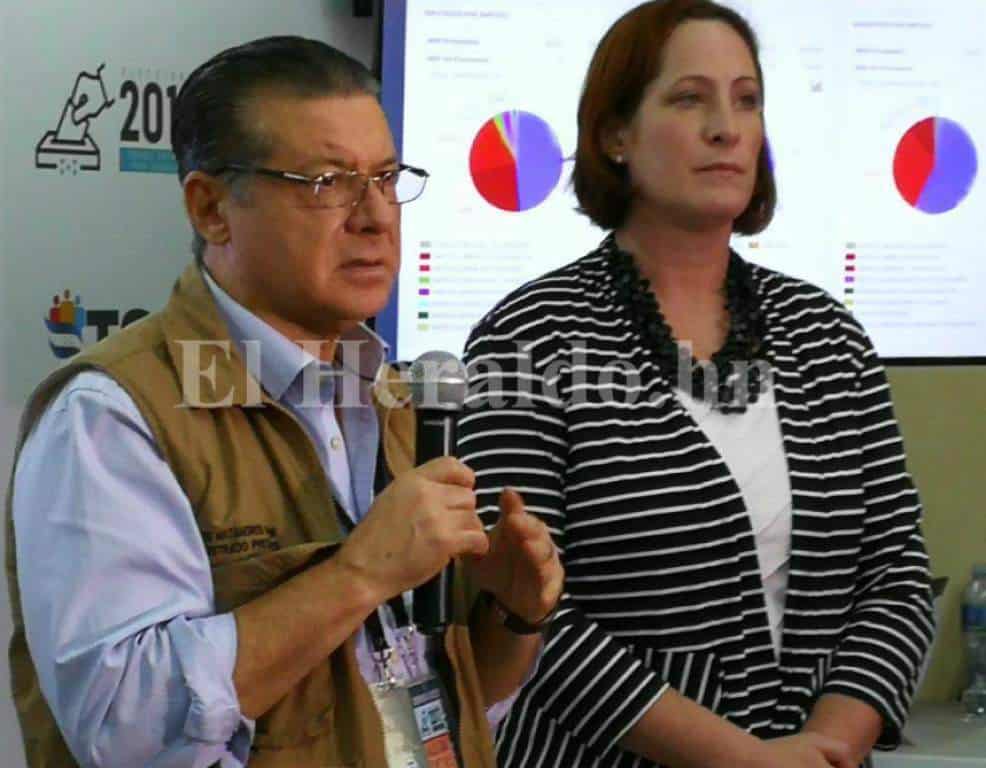
The Canadian government said:
The Minister of Foreign Affairs, Minister Chrystia Freeland said in a statement on December 2, 2017:
“Noting ongoing delays in the publication of final, definitive election results, Canada insists on the need for election authorities to complete the vote count without interference. Canada also calls for calm and urges all parties to resolve any disagreement peacefully, transparently and in line with the highest democratic and human rights standards.” (To put this statement into context, see Tyler Shipley’s article).
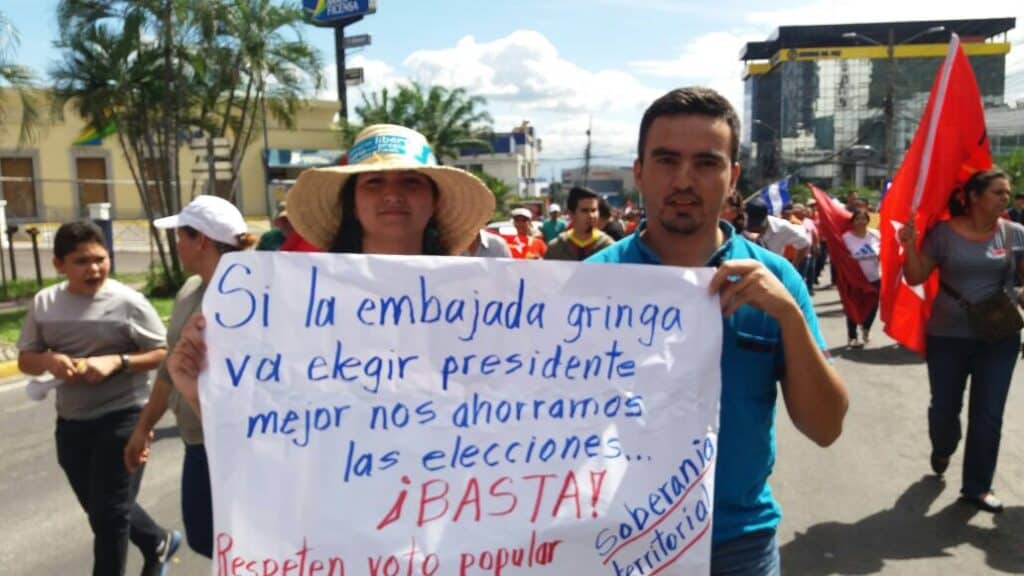
*****
For additional resources on the U.S. and Canadian role in the three fraudulent elections
- Read Tyler Shipley’s ‘Canada and Honduras: Election Fraud is Only the Latest Outrage in Eight Year Nightmare’ in the The Bullet (2017) here.
- Read CEPR’s ‘Dirty Elections in Honduras, with Washington’s Blessing’ (2018) here.
- Read Common Frontier’s ‘Canadian electoral observers question the legitimacy of the Honduran election results’ (2017) here.
- Read Kevin Edmonds’ ‘Honduran Election Results Contested by International Observers’ in NACLA (2013) here.
- Read CEPR’s ‘Honduras’ Most Prominent Human Rights Expert Calls on Obama Administration to Denounce “Grave Human Rights Violations”‘ article (2009) here.
- Read the Rights Action archives ‘Honduran Regime, 2009-2022, 13 years of Repressive, Open-for-global-business, U.S. & Canadian-backed Narco-Dictatorship’ here.
To follow and support the campaign
We are campaigning to hold the U.S. and Canada responsible for supporting the Honduran narco-state as former President Juan Orlando Hernández & police officers go to trial in New York on February 2024 (pending any further date changes).
- Read Update #1: U.S. and Canadian support for the coup: Creating the conditions for the construction of a narco-state.
- Read Update #2: Trial date change. The campaign continues.
- Read Update #3: “The U.S. government’s go-to man on the war on drug trafficking” pleads guilty to drug trafficking.
Facebook: Honduras Solidarity Network & Honduras Now
X (formerly Twitter): @Hondurassol @HondurasNow
Instagram: @HondurasNow
Web: Bit.ly/NarcoTrialCampaign
Contact: karen@hondurasnow.org & honsolnetwork@gmail.com
To donate: hondurasnow.org/donate
